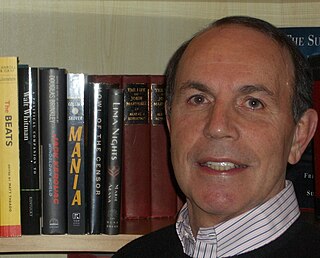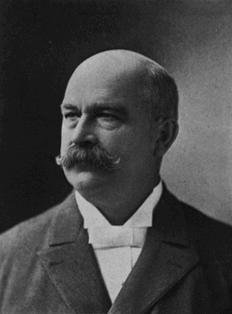Related Research Articles
Education reform is the name given to the goal of changing public education. Historically, the motivations for reform have reflected the contemporary needs of society. A consistent theme of reform includes the idea that systematic changes to educational standards will produce large social returns in citizen's health, wealth and well-being. Early education reform focused on making schooling more accessible by reducing the cost. For example, prior to the 18th century, the financial burden of classical education instruction from an in-home personal tutor, hired at the family's expense, was primarily a privilege for children from wealthy families. Encyclopedias, public libraries and grammar schools are examples of innovations intended to lower the cost of a classical education.
Progressive education is a pedagogical movement that began in the late nineteenth century; it has persisted in various forms to the present. The term progressive was engaged to distinguish this education from the traditional Euro-American curricula of the 19th century, which was rooted in classical preparation for the university and strongly differentiated by social class. By contrast, progressive education finds its roots in modern experience. Most progressive education programs have these qualities in common:

The First Amendment to the United States Constitution prevents the government from making laws which regulate an establishment of religion, or that would prohibit the free exercise of religion, or abridge the freedom of speech, the freedom of the press, the freedom of assembly, or the right to petition the government for redress of grievances. It was adopted on December 15, 1791, as one of the ten amendments that constitute the Bill of Rights.

A school uniform is a uniform worn by students primarily for a school or otherwise educational institution. They are common in primary and secondary schools in various countries.

Asa Philip Randolph was an American labor unionist, civil rights activist, and socialist politician.

Alexander Meiklejohn was a philosopher, university administrator, educational reformer, and free-speech advocate, best known as president of Amherst College.
Academic freedom is a moral and legal concept expressing the conviction that the freedom of inquiry by faculty members is essential to the mission of the academy as well as the principles of academia, and that scholars should have freedom to teach or communicate ideas or facts without being targeted for repression, job loss, or imprisonment. While the core of academic freedom covers scholars acting in an academic capacity - as teachers or researchers expressing strictly scholarly viewpoints -, an expansive interpretation extends these occupational safeguards to scholars' speech on matters outside their professional expertise. It is a type of freedom of speech.

Robert C. Solomon was an American professor of philosophy at the University of Texas at Austin, where he taught for more than 30 years. Professor Solomon won many teaching honors, including the Standard Oil Outstanding Teaching Award in 1973; the University of Texas President's Associates Teaching Award (twice); a Fulbright Lecture Award; University Research and National Endowment for the Humanities Grants; and the Chad Oliver Plan II Teaching Award in 1998.

Ronald Kenneth Leo Collins is the co-founder and co-director of the History Book Festival, co-founder and co-chair of the First Amendment Salons, editor of First Amendment News, and editor of ATTENTION. He was the Harold S. Shefelman Scholar at the University of Washington School of Law. From 2002 to 2009 he was a scholar at the Newseum's First Amendment Center.
David Michael Skover is the Fredric C. Tausend Professor of Law at the Seattle University School of Law. He teaches, writes, and lectures in the fields of federal constitutional law, federal courts, free speech & the internet, and mass communications theory. He is also a regionally acclaimed opera and musical theater singer.

Francis Wayland Parker was a pioneer of the progressive school movement in the United States. He believed that education should include the complete development of an individual — mental, physical, and moral. John Dewey called him the "father of progressive education." He worked to create curriculum that centered on the whole child and a strong language background. He was against standardization, isolated drill and rote learning. He helped to show that education was not just about cramming information into students' minds, but about teaching students to think for themselves and become independent people.
Geoffrey R. Stone is an American law professor and noted First Amendment scholar. He is currently the Edward H. Levi Distinguished Service Professor of Law at the University of Chicago Law School.
The Association for Supervision and Curriculum Development d/b/a ASCD is a membership-based non-profit organization founded in 1943. It has more than 125,000 members from more than 128 countries, including superintendents, principals, teachers, professors of education, and other educators. The ASCD Community also includes 52 affiliate organizations, self-organized Connected Communities, and ASCD Student Chapters. While ASCD was initially founded with a focus on curriculum and supervision, the association now provides its members with professional development, educational leadership, and capacity building. ASCD is a global community advancing student achievement by supporting the whole child, and seeks to develop programs, products, and services essential to the way educators learn, teach, and lead.

A Jungian scholar, Mayes has produced the first book-length studies in English on the pedagogical applications of Jungian and post-Jungian psychology, which is based on the work of Carl Gustav Jung (1875–1961). Jungian psychology is also called analytical psychology. Mayes' work, situated in the humanities and depth psychology, is thought to offer an alternative to the social sciences model.

Donna Wilson is an educational and school psychologist, teacher educator, and author of 20 books applying mind, brain, and education science. Recent works, with coauthor Marcus Conyers, include Teaching Students to Drive Their Brains: Metacognitive Strategies, Activities, and Lesson Ideas, Smarter Teacher Leadership: Neuroscience and the Power of Purposeful Collaboration, Positively Smarter: Science and Strategies to Increase Happiness, Achievement, and Well-Being, Five Big Ideas for Effective Teaching: Connecting Mind, Brain, and Education Research to Classroom Practice, and Flourishing in the First Five Years: Connecting Implications from Mind, Brain, and Education Research to the Development of Young Children.

Good Shepherd Cathedral School (GSCS) is a Filipino Catholic school located at the corner of Omega Avenue and Rado Street in West Fairview, Quezon City, Philippines. It is a private sectarian school situated at the back of the Cathedral Shrine and Parish of the Good Shepherd, the seat of the Bishop of Novaliches. GSCS is a member-school of the Roman Catholic Bishop of Novaliches Educational System (RCBN-ES), the Manila Ecclesiastical Province School Systems Association (MaPSA), the Catholic Educational Association of the Philippines (CEAP), and of the Philippine Accrediting Association of Schools, Colleges and Universities (PAASCU).
George Anastaplo was a professor at Loyola University Chicago School of Law and author who was famously denied admission for many years to the Illinois Bar. The denial of his admission became a Supreme Court case, In re Anastaplo, in which he insisted that the First Amendment of the U.S. Constitution protects the privacy of political affiliations; in particular, he refused to answer questions about membership in the Communist Party. Anastaplo's stand was based on Constitutional principles and consequent rejection of McCarthyism, and nobody alleged that he had membership in the Communist Party. The Supreme Court's majority upheld the lower courts' ruling in favor of the Illinois Bar, although Justice Hugo Black dissented. After his Supreme Court case and denial of admission to the Bar, Anastaplo supported his family by teaching at the University of Chicago and other universities and colleges. He wrote many articles and books on philosophy, many of which acknowledged the influence of his teacher, Leo Strauss.
George Dewey Yancy is an American philosopher who is the Samuel Candler Dobbs Professor of Philosophy at Emory University. He has been a professor of philosophy at Emory University since fall 2015. He is also a distinguished Montgomery Fellow at Dartmouth College, one of the college's highest honors. In 2019-20, he was the University of Pennsylvania's Inaugural Provost's Distinguished Visiting Faculty Fellow. He is also the editor for Lexington Books' "Philosophy of Race" book series. He is known for his work in critical whiteness studies, critical philosophy of race, critical phenomenology, and African American philosophy, and has written, edited, or co-edited more than 20 books. In his capacity as an academic scholar and a public intellectual, he has also published over 200 combined scholarly articles, chapters, and interviews that have appeared in professional journals, books, and at various news sites. For example, as a public intellectual, Yancy has authored numerous influential essays and conducted intellectually engaging interviews at both The New York Times' philosophy column "The Stone," and at Truthout. He has also published at CounterPunch, The Guardian, Inside Higher Ed, and The Chronicle of Higher Education. At "Academic Influence," Yancy is cited as one of the top 10 influential philosophers in the last 10 years, 2010-2020, based upon the number of citations and web presence. Yancy has been interviewed on various radio stations throughout the U.S. He has also appeared in two documentaries, Lillian Smith: Breaking the Silence, an independent documentary directed by Hal Jacobs and Henry Jacobs, with support from Georgia Humanities, 2019, and Rest in Power: The Trayvon Martin Story, a six-episode series released on July 30, 2018 on Paramount Network. Series was directed by Jenner Furts and Julia Willoughby Nason. Executive producers: Sybrina Fulton, Tracy Martin, Jay-Z, Chachi Senior, Michael Gasparro, Jenner Furst, Julia Willoughby Nason, and Nick Sandow.
Dr. Marcus Conyers is an author and developer of graduate degree programs focused on improving leading and learning by bridging mind, brain, and implementation research to practice. Conyers is the coauthor, with Donna Wilson, of 20 books in this field, including Smarter Teacher Leadership: Neuroscience and the Power of Purposeful Collaboration, Teaching Students to Drive Their Brains: Metacognitive Strategies, Activities and Lesson Ideas, Positively Smarter: Science and Strategies for Increasing Happiness, Achievement, and Well-Being, Five Big Ideas for Effective Teaching: Connecting Mind, Brain, and Education Research to Classroom Practice, and Flourishing in the First Five Years: Connecting Implications from Mind, Brain, and Education Research to the Development of Young Children.
Sarah Margon is an American political advisor who is the nominee to serve as Assistant Secretary of State for Democracy, Human Rights, and Labor in the Biden administration.
References
- ↑ Candid. "Five Freedoms Project". Philanthropy News Digest (PND). Retrieved 2021-04-23.
- ↑ "About – Sam Chaltain" . Retrieved 2021-04-23.
- ↑ "Sam Chaltain". Education Reimagined. Retrieved 2021-04-23.
- ↑ "Sam Chaltain: Has Testing Reached a Tipping Point? (Part Deux)". National Education Policy Center. Retrieved 2021-04-23.
- ↑ "Sam Chaltain - Opinionator - The New York Times". opinionator.blogs.nytimes.com. Retrieved 2021-04-23.
- ↑ "WEDDINGS/CELEBRATIONS; Sarah Margon, Samuel Chaltain". The New York Times. 2004-06-13. ISSN 0362-4331 . Retrieved 2021-04-23.